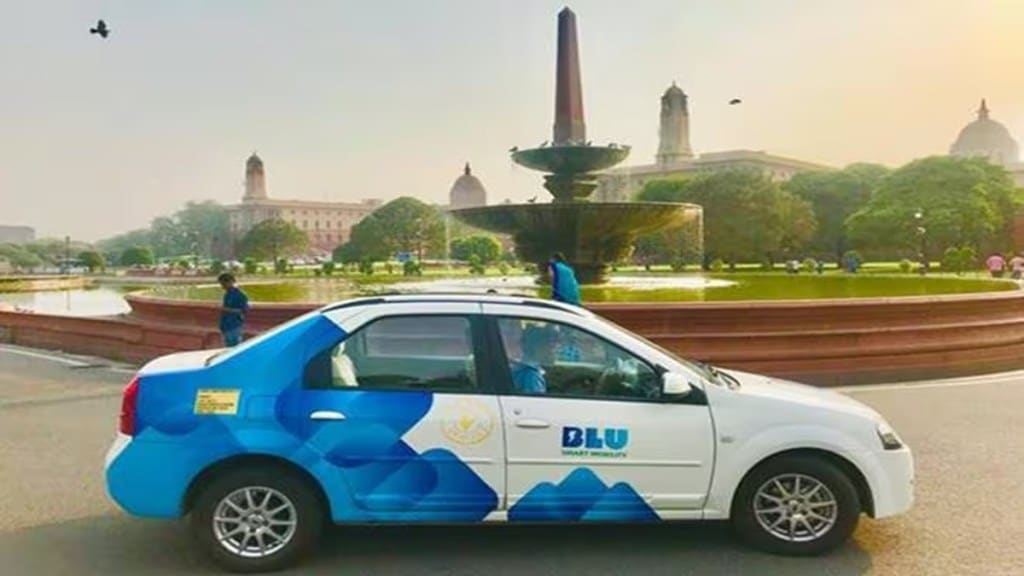All-electric ride-hailing platform BluSmart Mobility is restructuring its operations as part of an ongoing effort to streamline its financials. The company, which generates monthly revenue of Rs 70 crore, translating to an annual run rate of approximately Rs 840 crore, is making strategic adjustments to its fleet management, co-founder Puneet Singh Jaggi told FE in an interaction.
A key part of this restructuring involves Gensol Engineering, a company closely linked to BluSmart, winding down its existing lease arrangements. As part of this move, Gensol is selling 2,997 electric vehicles to Chennai-based Refex Green Mobility, which will then lease them back to BluSmart.
“There is going to be absolutely no difference to the fleet through this transaction,” Jaggi said. “None of the liquidity pressure at Gensol is going to have an impact on BluSmart operations. In fact, we have been undertaking efforts to reduce the burden on Gensol. This sale of vehicles to Refex is a part of those efforts. BluSmart’s fleet will continue and, God willing, grow with time. Our fleets will remain with us and keep on driving in blue,” Jaggi added.
The deal with Refex involves approximately 37% of BluSmart’s 8,000-vehicle fleet, with Refex taking over Gensol’s existing loan of Rs 315 crore. This restructuring comes in the wake of two rating agencies downgrading Gensol’s borrowing status to default earlier this month.
BluSmart’s fleet primarily consists of electric vehicles from Tata Motors, Citroen, and MG Motors, with a minority share coming from Gensol Engineering. Despite financial restructuring, the company remains focused on its core ride-hailing business and expansion.
According to data from Tracxn, BluSmart recorded revenue of Rs 70.9 crore in FY23, compared to Rs 8.1 crore in FY22. However, net losses also widened from Rs 100.4 crore to Rs 215.9 crore during the same period. Jaggi reiterated that the company remains committed to turning profitable within the next “6 to 8 quarters”.
BluSmart has also been diversifying its vehicle acquisition model. Its “BluSmart Assured” leasing programme, launched last year, enables high-net-worth individuals and investors to lease EVs directly to the company. This initiative has already placed close to 1,000 cars worth approximately Rs 150 crore into BluSmart’s operational fleet.
In addition to fleet expansion, BluSmart is keeping a close watch on new EV technology. When asked about Gensol’s recently launched two-door, two-seater Evs — Ezio and Ezibot — that have reportedly received 30,000 pre-orders, Jaggi clarified that BluSmart accounts for only a portion of those orders, with multiple third-party buyers making up the majority. These compact EVs, designed for urban mobility, claim running costs as low as 50-60 paise per km, making them up to 80% cheaper to operate than petrol vehicles, with a range of 200 km on a single charge.
On international expansion, Jaggi said that BluSmart’s primary focus remains on the Indian market. “For the time being, our focus is going to remain in India. Once we have done a very good job of penetrating the Indian market and satisfying the Indian customer, then we can look at other opportunities,” he said.
Jaggi denied recent reports suggesting that Uber Technologies was in early discussions to acquire BluSmart due to liquidity pressure at Gensol. “There is absolutely no truth to reports suggesting that we are in talks with Uber, Everest Fleet, or any other potential acquirer,” he said.
